Things to Know for Safe Travel
- Respect local cultures and ways of life. Do not criticize from a position of privilege.
- Do not harm the environment. Leave no garbage behind.
- In natural settings, do not make large noises, play music, set off fireworks, or light fires.
- Respect life. Do not hunt animals; do not take insects or plants.
- Do not frighten or disturb animals.
- Do not set animals loose; do not feed, buy, sell, or eat wild animals.
- Take nothing but photos; leave nothing but footprints.
- Follow Scenic Area rules.
- Have a fun trip and get home safe.
Have Fun Safely
- Don’t go to places that aren’t supervised by anyone.
- Check the weather conditions before you set out. When the weather’s bad or the roads are closed, don’t go.
- Do not go into hazardous area. Follow warnings and prohibitions.
- Minimize garbage throughout your trip. Do not frighten animals; do not take plants
Reminders For Travel in Wetlands
- Leave no garbage behind. Do not frighten animals; do not take plants
- Before going to an intertidal zone, check when that day’s tides will be. Have fun in the water, but be careful of high/rising tide.
Reminders For Travel to Waisanding Sandbar
- Follow the instructions of expert guides.
- Remember to bring your own sandals, parasols/umbrellas, sunblock, and other things to stay safe in the sun.
- When you’re going to take a tourist boat, bring your passport, Taiwan Alien Resident Certificate (ARC), entry permit,or other from of ID for Coast Guard verification.
- Oyster shells in intertidal zone sandbars are sharp and can easily injure your feet. Wear comfortable shoes, and do not go barefoot.
Reminders For Birdwatching.
- The Five Don’ts of Birdwatching: Don’t Scare; Don’t Lure; Don’t Chase; Don’t Harm; Don’t Catch.
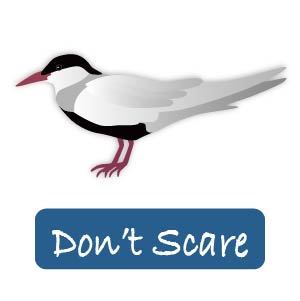
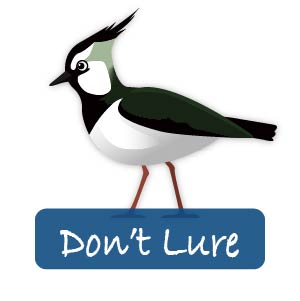
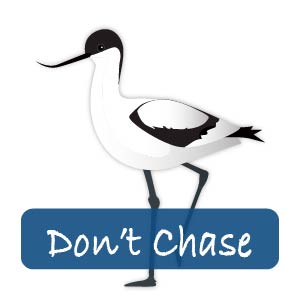
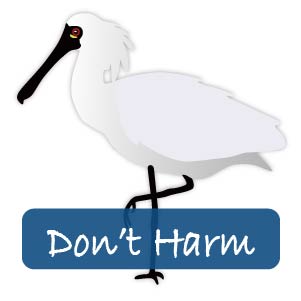
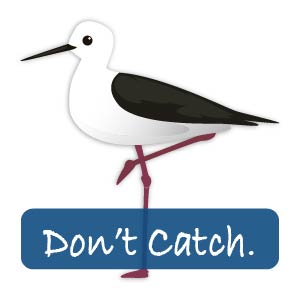
- Do not cut flowers, tree limbs, or foliage, and do not otherwise damage natural habitats for your own convenience in birdwatching or photography.
- When you find a bird nest or eggs, only look for the shortest time possible, or you may prevent the parent birds from returning to the nest. Do not take bird eggs or baby birds.
Reminders for Salt-fields Activities.
- Wear sandals and breathable clothes; make sure to wear appropriate sunblock.
- Do not go outside of the Experiential Area (體驗區).
Reminders for Religious Activities
- During religious events, do not go into any areas designated as restricted by the temple/shrine.
- Maintain basic respect to enshrined gods. If you encounter a deity’s sacred palanquin on its pilgrimage journey, stand, take off any hats/caps, and respectfully welcome the palanquin’s passage.
- Do not try to force yourself into or through a pilgrimage procession. Wait until there is a break in the procession. Forcing your way into/through a procession is a serious taboo.
- Before taking photos of an idol, bow in respect and announce your intentions. When a procession is praying in a temple, do not stand directly between an incense burner and the altar (i.e., between the worshippers and the idol) to take photos. When taking photos, respect individual privacy and get permission before taking photos of specific people.
- Do not climb on or damage any fittings or fixtures built for religious purposes (such as performance stages, paifang ceremonial gates, piles of ghost money, flagpoles, etc.).
- Follow directions from temple and onsite personnel. Stay safe, and don’t break taboos.
Safety in the Water
- When you take any boat, yacht, sampan, raft, etc., wear a life jacket and keep safe. If water transport is overloaded or unlicensed, don’t board it.
- When doing water activities, be alert for changes in the weather and tides, as well as geological changes, to keep yourself safe.
- Do not swim, take boats, etc. in sea areas that are affected by typhoons.
- Do not swim or go in the water at coastal/sea areas with no lifeguards on duty.
- Have fun in the water, but go with a friend. Bring required life-saving equipment. Don’t go in the water by yourself, so you don’t become a victim.
- It is extremely dangerous for children to play in the water by themselves. Children must be accompanied by adults.
Vehicle Safety
- When taking mass transit:
- Do not bring any flammable or otherwise dangerous items on board vehicles.
- When taking passenger road vehicles (cars, tour buses, etc.), wear your seatbelt to prevent injuries.
- When taking tour buses, take note of where the emergency exits and fire extinguishers are; note how the window breakage hammers should be used.
- When driving, remember to Slow Down, Look, and Stop; when walking, remember to Stop, Look, and Listen.
- When driving your own vehicle, plan your route before setting out, and know the road conditions.
- Before driving your own vehicle, remember to check “Be a Good COW”: Brake fluid, Gas, Coolant, Oil, and Washer Fluid.
- Plan your route before you go, for lower carbon emissions and less time being lost!
Bike Safety
- Make sure to choose a bike that’s sized for you, and wear appropriate clothing.
- Follow all traffic laws and signals. On pedestrian paths, go slowly and yield to pedestrians.
- Wear a bike helmet and anti-slip gloves, to reduce accidents and injuries.
- Don’t ride one-handed, and don’t use your phone while riding. Pay attention to your physical condition, and stay hydrated.
- When it’s raining, misty, or visibility is otherwise poor, avoid riding.
- Before starting a ride, check your: Front and rear brakes; handlebars and stem; tires and pressure; rims; seat; pedals; derailleur system; and lights. Make sure your bike is in the best possible condition.
- Watch out for potholes, bumps, and slippery patches. Don’t ride side-by-side, and don’t race.
- Maintain a safe distance: On flats, at least 2 bike-lengths, and on down-slopes, at least 5 bike-lengths.
- Especially on narrow roads, watch out for oncoming traffic. On flood control roads, watch out for traffic in both directions.
Buying and Eating Safely
- Do not buy seafood whose origin you do not know. Only buy from legal businesses.
- Know your own dietary restrictions. Don’t try food carelessly or over-eat.
- Only eat and drink things that are clean and healthy. Choose food & drink providers that are clean and hygienic.
- Don’t eat raw seafood. If you experience any discomfort, stop eating the food immediately and seek medical attention.
Camping Safety
- Plan and prepare well before you set out.
- Camp only at legal camping sites.
- Do not go into hazardous areas on land or sea.
- Stay alert and stay safe.
- In places that aren’t being managed by anyone, pay attention to prohibitions and restrictions.
- Take nothing; leave nothing.
Preventing and Responding to Disasters
- When a traffic accident occurs: Keep the site as it is, and call the police right away. Note vehicle license plates. If the accident is serious, call 119 or 110 for help.
- In cold conditions, take precautions to prevent frostbite and hypothermia (low body temperature). Wear layers of warm clothing to prevent illness and injury.
- On typhoon days, avoid going out. If you must go out, wear bright clothing, and only walk where you can hold onto solid handholds.
- When a boating accident occurs, call 118, or by cellphone, call 112. Use life-saving equipment to escape. When emergency conditions require going into the water, activate a rescue signal before leaving the vessel. After entering the water, get away from the vessel as quickly as possible to prevent being taken down with it.
